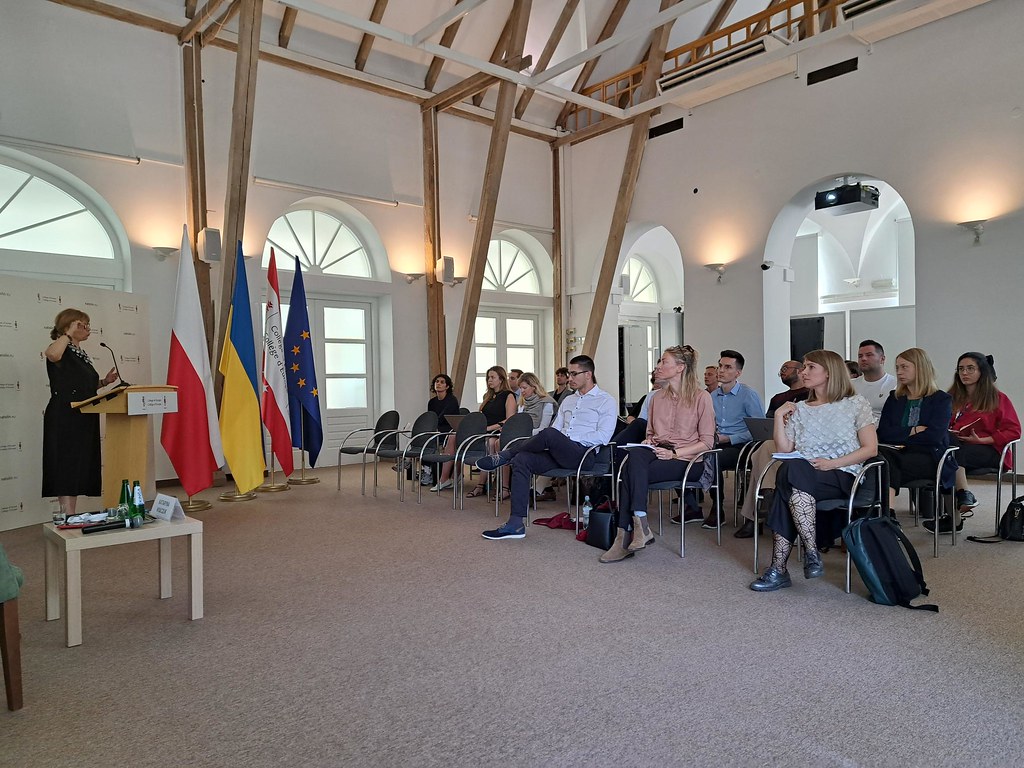The College of Europe in Natolin recently hosted 22 young diplomats from European Union Member States for the Borderland Study Trip Module of the European Diplomatic Academy Pilot Programme (EUDA).
A weeklong program was conducted at the College of Europe in Natolin in conjunction with the start of the second edition of the EUDA programme run by the European External Action Service. It allowed participants to thoroughly understand the current regional, European, and transatlantic security situation following the full-scale Russian invasion of Ukraine on 24 February 2022. Owing to the field trip to the Podkarpacie Region, the participants gained a first-hand insight into the life of border towns on the EU's frontier during the war in neighbouring Ukraine. They could interact directly with local authorities, including the Mayors of Rzeszów, Przemyśl, and two Ukrainian cities - Truskavets and Konotop.
Participants of the Borderland Study Trip Module were able to interact with officials, including diplomats, local authorities, NGOs, and international organizations assisting war refugees, think-tankers, journalists, and academics representing the Ministry of Foreign Affairs of Poland, the Rzeszów and Przemyśl town halls, the Polish Institute for International Affairs, the Polish Border Guard, Centre for Eastern Studies, UNHCR, OSCE ODIHR, Free Belarus Museum, FRONTEX, IOM, SOLETERRE Foundation, Medevac Hub Jasionka, and UNHCR Protection Hub.
Attending 26 meetings, lectures, panel discussions, workshops, and other formats, participants met over 40 speakers. As part of the study trip, they visited Warsaw, Rzeszów, and Przemyśl border towns and the Polish-Ukrainian border checkpoint at Medyka.
After completing the study trip module, the young diplomats will continue their programme with a four-month core course at the College of Europe in Bruges and a one-month traineeship at the European External Action Service headquarters in Brussels.

